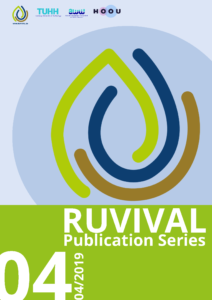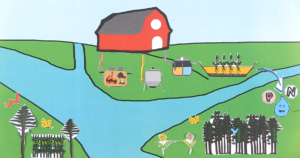This post is also available in: Español (Spanish) Français (French) Deutsch (German) اردو (Urdu)
Sustainable wastewater management in any situation is the one that is economically affordable, environmentally sound, technically and institutionally consistent, and socially acceptable for the specific situation. This paper presents a review of the advantages and limitations of various centralised and decentralised wastewater treatment options. Centralised wastewater collection and treatment systems are resource intensive and complex to build and operate, especially in areas with low population densities and dispersed households. Alternatively, the approach of decentralised wastewater treatment appears as a sustainable and logical solution to tackle problems of rural wastewater management.
UPDATE: The updated version of this literature review is part of RUVIVAL Publication Series Volume 4. A working version of this paper was previously published and discussed online. It can be read here.
- Energy Access for Sustainable Rural Development: Literature Review on Distributed Renewable Energy for Rural Electrification in Africa (pp. 8 – 38)
- Integrated Decentralised Wastewater Treatment for Rural Areas with a Focus on Resource Recovery (pp. 39 – 64)




